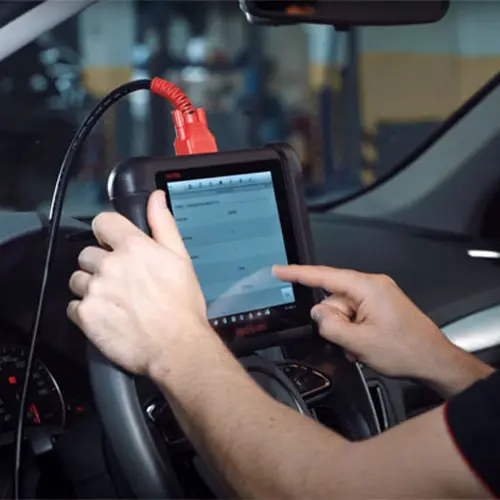Emergency Car Key Repair: A Comprehensive Guide
Car keys are a crucial part of vehicle ownership, and their sudden breakdown can trigger considerable hassle. Whether lost, broken, or harmed, understanding how to manage emergency car key repair is important for any vehicle owner. This extensive guide explores various elements of car key repair and replacement, attending to common concerns, potential solutions, and the value of professional services.
Comprehending Car Keys
Modern car keys can be found in different types, each including unique innovations and functionalities. The primary types include:
- Traditional Mechanical Keys: The most basic kind, these keys run through a mechanical locking system.
- Transponder Keys: Equipped with a chip that communicates with the car's ignition system for improved security.
- Key Fobs: Remote access systems that frequently consist of keyless entry features.
- Smart Keys: Advanced systems that enable for keyless ignition and entry, typically found in more recent vehicles.
Typical Issues with Car Keys
In emergency circumstances, comprehending the reason for car key breakdown can assist determine the right technique for repair. Some frequently experienced issues consist of:
- Key Breakage: Often occurs due to wear and tear or extreme pressure when inserting or turning the key.
- Lost Keys: Misplacement or loss of keys can leave a vehicle owner stranded.
- Dead Key Fob Battery: A common issue with remote keys, causing failure in keyless entry or ignition.
- Transponder Key Malfunction: If the chip in the key is harmed, the vehicle might not acknowledge the key.
- Lock Cylinder Issues: Problems with the ignition or door lock cylinders can prevent the key from turning appropriately.
DIY Emergency Car Key Repairs
Before availing expert services, certain scenarios may allow for DIY repairs. However, these methods depend upon the problem at hand. Below are some methods:

1. Broken Key Repair
Materials Needed: Super glue, a pair of pliers, and wet wipes.
Steps:
- Carefully line up the two pieces of the broken key.
- Use a percentage of super glue to the break and hold the key together for a couple of minutes.
- Wrap the key with tape to offer additional support while the glue dries.
- If the key breaks once again, consider getting a duplicate made.
2. Dead Key Fob Battery Replacement
Materials Needed: New battery (generally CR2032), little flat-head screwdriver.
Steps:

- Open the key fob using the screwdriver.
- Get rid of the old battery carefully.
- Change it with a brand-new battery, making sure the favorable (+) side deals with the correct direction.
- Close the fob and test the functions.
3. Lock Cylinder Issues
If your key won't kip down the lock, it might be due to particles or problems with the cylinder itself.
Materials Needed: Lubricant spray, an old tooth brush or fabric.
Actions:
- Spray a small amount of lube into the lock cylinder.
- Utilize a fabric or old tooth brush to clear any particles or dirt.
- Attempt to turn the key gently.
When to Seek Professional Help
While many problems may be resolved through DIY methods, some issues require the know-how of a professional locksmith or car dealer. The following circumstances usually require expert intervention:
- Severe Damage: If the key is substantially damaged or broken, changing it may be required.
- Transponder Key Issues: Expert reprogramming might be needed if the key fails to communicate with the vehicle.
- Key Duplication: For complicated key types, a locksmith makes sure precise duplication or replacement.
Benefits of Choosing Professional Services
- Expertise: Professionals have the needed training and experience to deal with various kinds of keys.
- Time Savings: Instead of experimentation, professionals can solve concerns efficiently.
- Access to Technology: Locksmiths can reprogram transponder keys and key fobs that require customized devices.
Comparison Table: DIY vs. Professional Services
| Aspect | Do it yourself Solutions | Expert Services |
|---|---|---|
| Cost | Low (minimal tools) | Higher (service charges) |
| Skill Required | Fundamental | Advanced |
| Time Efficiency | Variable | Fast |
| Repair Capabilities | Limited to minor problems | Wide range of repairs |
| Tool Accessibility | Fundamental tools | Specialized devices |
Regularly Asked Questions (FAQs)
1. Can I get a car key made without the initial?
Yes, a locksmith can typically create a duplicate key utilizing the vehicle's VIN (Vehicle Identification Number).
2. How long does it require to replace a car key?
The time required depends on the key type and the complexity of the locksmith's work. Fundamental keys may take a few minutes, while electronic key fobs may take longer.
3. Will my car guarantee cover key replacement?
Generally, car guarantees do not cover key replacement. However, it's finest to talk to your car dealership relating to protection specifics.
4. Is it safe to buy car keys online?
Purchasing car keys online can be dangerous; it's crucial to make sure that the provider is respectable. Numerous keys need programming that can only be done by specialists.
5. What should I do if my key gets stuck in the ignition?
If your key is stuck, prevent requiring it out. Instead, turn off the vehicle, ensure the gear remains in 'Park,' and gently wiggle the key. If it does not come out, look for professional help.
Dealing with emergency car key repairs can be daunting, but understanding the types of keys, typical concerns, and repair choices can alleviate the stress. While DIY methods can be efficient for minor repairs, understanding when to call an expert can conserve time, disappointment, and eventually, money. By being proactive and notified, vehicle owners can guarantee they are well-prepared for any car key emergencies.


